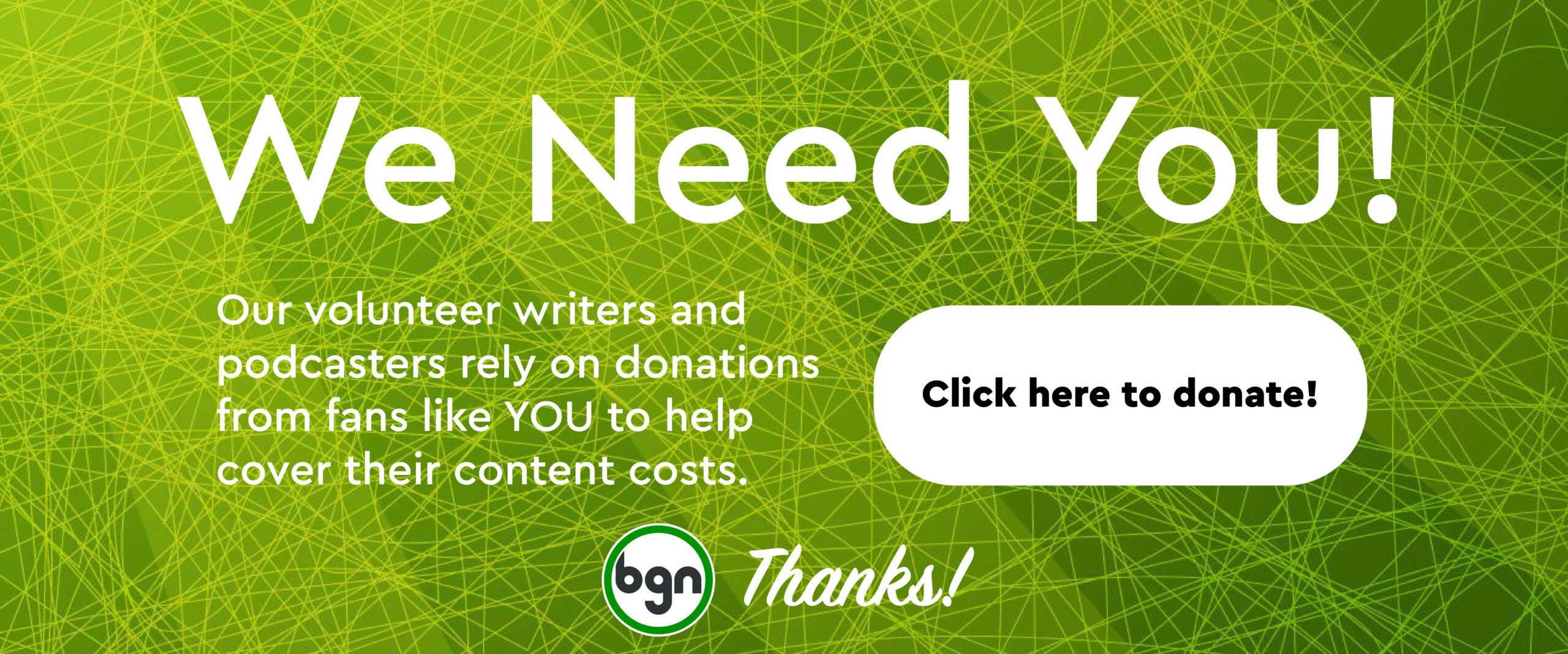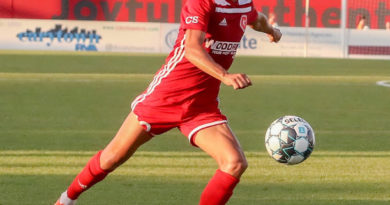A Delayed Union: How COVID-19 is impacting Omaha’s new professional soccer team
With its inaugural USL League One season on hold, Union Omaha are trying to navigate unusual territory.
2020 was set to be a historic year for Union Omaha, the newest member of American soccer’s third division, USL League One. The club had successfully launched its brand, assembled a roster, and showed potential in preseason, winning once and drawing twice in a tournament against second division notables Louisville City, Colorado Springs Switchbacks FC, and Real Monarchs SLC. A 3-2 win over Minnesota United of Major League Soccer in a closed-door friendly only added to the fire.
Then, suddenly, the club had its debut season ripped away by an unforeseen event which in turn put virtually all sports across the globe into dormancy: the COVID-19 outbreak. A league-wide suspension of play, starting at a minimum of two weeks, put a halt to Omaha’s new club along with the eleven other clubs calling the USL League One home. Union Omaha had broken expectations, selling over 2,000 season tickets and amassing sizable crowds to events like their badge unveiling, but now those fans were without a season to attend.
As of the writing of this article, it is still unclear when the league will kick off and how it will make up for the critical weeks and eventual months of play lost. With a young sports league already broken down by the nationwide shut down in the form of the XFL, the effects COVID-19 will have on individual teams like Union Omaha is still unclear. The fact that one USL League One club, the Lansing Ignite, has already folded since the league’s inception in 2019, should provide a reminder that anything is possible. And so, arrives the question; how does a team that is yet to play a league match maintain momentum when the world of sport is in free fall and matches are out of sight? How does a team maintain its financials? How does a fanbase stay energized for a club that they’ve never seen play in a competitive match?
Matt Homonoff, Union Omaha’s chief operating officer, is frank when asked about the state of the club’s momentum following that strong pre-season against first and second division opposition. “I would offer that the ability to maintain any sense of momentum is pretty much gone,” Homonoff explained. “That’s nobody’s fault. That’s just the reality that pro sports teams are dealing with right now.” The situation, in which the club’s front office and social media has gone from operating as a conduit for gameday activities and information to a home for raw content creation, has provided a major challenge for Omaha, amongst others.
One way the Union kept the wheels turning without play is by participating in the USL League One eCup, in which USL clubs play Rocket League against one another. Omaha won their group with a 3-0 record, beating representatives from Loudoun United, Hartford Athletic, and the OKC Energy. A dominant win over fellow USL League One club the Richmond Kickers would kick off a strong playoff run in the Rocket League tournament. The next round of the tournament, against the USL Championship’s Birmingham Legion, ended in another resounding win.
With the ability to play out of the picture, Homonoff also noted that the club has had to rethink the way it spends money, putting all but the essential expenditures on pause. “The reality is that without any money coming in from ticket sales or sponsorship sales, and prior to our big launch last week, merchandise sales, you can’t spend any money because you’re not bringing any money,” the Union COO continued. “That’s been a massive challenge. It’s resulted in staffing changes that were necessary.” Social media tallies aside, Union Omaha has also had the major challenge of helping its roster of players, almost all of which had not lived in the state prior to 2020, feel safe and occupied during the quarantine. In addition to daily video calls, the Union Omaha roster is prescribed individual workout plans in addition to other resources. “They have video conferences with sports psychologists and additional medical professionals are made available to them via video conferencing whenever the coaching staff deems fit,” Homonoff explained. “We’re sparing no expense and no resource in terms of keeping them active so that when they can return to practice, they’re ready to do so.”
In addition to continuing their digital networking amongst the roster and ensuring said players follow quarantine protocol hand in hand with the entire city of Omaha, the club has found itself with a unique obstacle. That obstacle is the immigration status of Kenyan midfielder Tobias Otieno, who signed for the club from afar and was still waiting for his visa to be processed when the COVID-19 pandemic shut down his path to the United States. Previously with Kenyan giants Gor Mahia FC, Otieno is still set to join the team when the situation normalizes but finds himself even more isolated from the club than his Omaha- situated teammates. The midfielder uses social media and Zoom to keep in touch and shape. “We’ve got a player stuck in Kenya right now, who can’t practice with his old team because he’s no longer with them and obviously can’t practice with us,” Homonoff continued. “It’s an incredible illustration of how interconnected the soccer world is and how this crisis, which is obviously a public health crisis and economic crisis, is also a social crisis, on every level. It really extends to the entire human family.”
For the supporters of Union Omaha, the lack of action on the pitch has proven a community-defining obstacle. For the club’s biggest supporters group, the Omaha Parliament, COVID-19 has been a life-changing affair but not enough to kill their passion for what would be Nebraska’s first-ever professional soccer team. Parliament vice president Chip Nelsen noted that the sudden change of plans was hard to deal with at first as both the club and its supporters had built a considerable amount of momentum heading into the season. “We had been building up all this energy and had had a bunch of great events,” Nelsen explained. “We had over 150 people come to watch an exhibition game versus the Real Monarchs on YouTube with no sound at a local bar. We were really jacked for the season to start.” Despite this, the Omaha Parliament have stayed active in various ways during quarantine, including social media activities and designing game day materials. “We’re being active on social media channels,” Nelsen continued. “We’re working still on designing our tifo because that’s something we can do without being present together. We’ve also been working on some designs for some other really cool stuff for our supporters, and just kind of trying to keep that activity level up.”
Our first announcement! We are partnering with Benson Brewery during Nurses Week (May 4th-9th)! Benson will be selling tshirts with the logo below at their location. $20/shirt or $15/shirt with a meal purchase. Every shirt sold is a meal donated to a local nurse! pic.twitter.com/MpSWvi6Qci
— Omaha Parliament (@OmahaParliament) April 26, 2020
Nelsen also noted that the Parliament’s relationship with the Union’s front office had maintained during quarantine, with COO Matt Homonoff and owner Gary Green both staying in touch and regularly updating supporters on developments within the club and the USL. Nelsen also added that many supporters are hopeful that the community around the club, much like the state of Nebraska and the United States, can reach the other side of the COVID-19 pandemic stronger. “For a lot of our supporters, it’s knowing that at the end of the tunnel, we have this coming up in the summer,” Nelsen continued. “You don’t realize how much you take things like sports, or going to the pub to have a beer with your friends for granted until you can’t do it anymore… this is a story that I’ll be telling my grandkids about when we go to Union Omaha games.”
A strong preseason and sense of community have left the community around Union Omaha with a positive, yet realistic, outlook on their delayed premier. It can be said that in a state whose collegiate scene, particularly through Creighton University, has produced the likes of Ethan Finlay, Brian Mullan, Fabian Herbers, and Seth Sinovic, there may well be something special in the soil. Whether that comes to fruition in the USL is unclear, but it can be said that in the case of their first and perhaps greatest challenge, the people of Omaha have shown that they never needed a ball to be kicked to show their passion. That being said, for the social and financial security of Union Omaha and their fellow USL clubs, the ball needs to get rolling.





